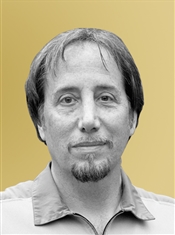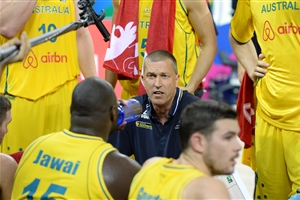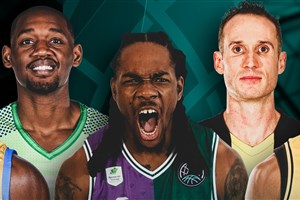
Giving thanks for Aussies
Charlotte (Steve Goldberg's Wheel World) - It's Thanksgiving Day here in the U.S. yet my mind is half a world away. Among other things this day, I'm thankful for an organization 10,000 miles from where I sit called Sport Matters and the work they are doing not just across Australia but throughout the South Pacific.
Through them, basketball, specifically wheelchair basketball, has already created new opportunities for people with disabilities in the Solomon Islands. They have also introduced basketball, standing and sitting, to Timor-Leste. Fiji is next in their sights for a wheelchair basketball program.
Sport Matters has strong basketball roots. A founding director is Liesl Tesch, winner of three medals (two silver, one bronze) in five Paralympic Games as a stalwart player for the Gliders, Australia's national women's wheelchair basketball team. After retiring from the court, she went to London 2012 for her sixth games as a sailor, finally winning a gold medal to round out her collection.
I saw that gold medal on full display at the O2 Arena in London during Australia's wheelchair basketball medal matches… except that Liesl wasn't wearing it. She deigned to give that honor to a large inflated kangaroo perched courtside - by itself much of the time - in the athlete seating area. I still have a photo of that nicely accessorized Joey and its stylist somewhere and will post it on Twitter (@FIBAWheelWorld).
A lifelong athlete, the effervescent Tesch has always had a world view, having played ball professionally - the first woman to do so on men's teams - in Spain, Italy and France when not globetrotting with the national team over the years. Now, she and the others of Sport Matters are giving back.
Belinda Barnier, also a director of Sport Matters, was recently interviewed on Radio Australia, the international service of the Australian Broadcasting Corporation on how sports like wheelchair basketball can generate both individual and societal impact.
Focusing on all those marginalized, they do more than adaptive sports but Barnier says that one "aim of Sport Matters is to bring better outcomes to people with disabilities in their communities."
She notes that the purpose of bringing these sports to developing countries is to help build their leadership skills on and off the fields of play.
In the Solomon Islands, "we took people out of their huts who were amputees as a result of diabetes and now they are engaging in their community by playing sports or organizing sporting activities. It's been a very inspirational outcome."
"It's really opened up opportunities for people not just in competing but in the organizational side of things and engagement.
"It is now part of their sporting calendar," added Barnier.
In 2013, the Solomon Islands National Games included people with disabilities for the first time with the introduction of wheelchair basketball as an exhibition sport. In a separate interview with Radio Australia a year ago, Nina Davis, President of the Solomon Islands National Paralympic Committee, described plans to develop a wheelchair basketball league that would include players without a disability to fill out rosters.
That is a universal benefit not limited to those in developing nations. Barnier recounted the story of a man who attended the organization's annual benefit in the Australian capital of Canberra.
"He had really been excluded from his community because of his limitations for about five or six years," he said. "After taking part in our event, he's now back in the community; he's back driving a vehicle. He was an amputee and his life had been a very sad case. He's now integrated into the community and very proud of his achievements."
The event Barnier referred to is Sport Matters' annual fundraiser, called Wheelout in the Capital, which includes an all-comers, no-disability required wheelchair basketball competition for groups entering teams, a skills clinic and a celebrity challenge. Along with showcasing wheelchair basketball to the broader community, proceeds from this year's event on 1 December at the University of Canberra will support the basketball program for Fiji.
Good on ya Sport Matters. Good on ya Australia.
Steve Goldberg
FIBA
FIBA's columnists write on a wide range of topics relating to basketball that are of interest to them. The opinions they express are their own and in no way reflect those of FIBA.
FIBA takes
no responsibility and gives no guarantees, warranties or
representations, implied or otherwise, for the content or accuracy of
the content and opinion expressed in the above article.
To help
make this column as inclusive as possible, please send any national or
international event information, story suggestions, or comments to wheelworldmail@gmail.com.

















